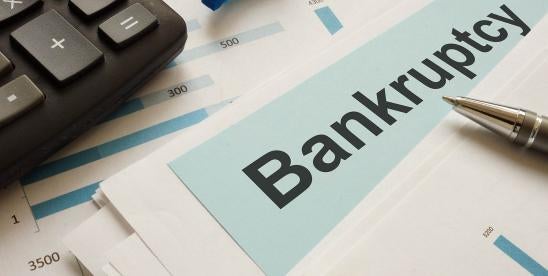In my most recent blog post, I provided some tips for creditors who find themselves in the Subchapter V arena. This is somewhat of a follow-up to that one.
There is a general consensus that Subchapter V has been successful for debtors in smaller cases. The American Bankruptcy Institute recently commented that Subchapter V bankruptcies comprise nearly 30% of all Chapter 11 bankruptcy cases filed since enactment of the Small Business Reorganization Act (SBRA) in 2020.[1] This is no surprise – the advantages that a Subchapter V brings are meaningful and often case dispositive relative to a standard Chapter 11.
Presently, Subchapter V is only available to debtors with less than $7.5 million in secured and unsecured debt. However, the $7.5 million debt limitation is set to sunset (i.e., expire) on June 21, 2024. Upon expiration, the debt limit will be reduced to $3,024,725. There is, however, hope for prospective debtors. A bipartisan group in the United States Senate is sponsoring legislation (S. 4150, by Sen. Richard Durbin of Illinois) that would further extend the expiration of the current $7.5 million limit for an additional two years.[2] That would be welcome news to many prospective small businesses that may otherwise fall outside the debt limit if it expires soon.
But what if…bear with me here…what if Congress doesn’t get it done?
Let’s play out a hypothetical to illustrate an unfortunate scenario. If you’re outside or in-house counsel to a company suffering distress, and Congress doesn’t act, you DO NOT want to find yourself in this situation:
Counsel to CEO in April 2024: We successfully negotiated a forbearance agreement with our bank. We can table bankruptcy at this time, because I negotiated six more months to find a resolution.
CEO: Great! It’s going to be tough, but I think there’s enough interest out there to support a refinance. It’s only $5,000,000 that we owe the bank.
CEO four months later: Interest rates are too high, and the market isn’t what I thought it would be. I have no options available to resolve the bank’s debt. We should explore a bankruptcy. I read somewhere that it’s really working for small businesses like us.
Counsel: I heard the same thing. I’ll check on that.
Ooops. The company just missed an opportunity.
Notwithstanding the good news that the Senate is paying attention to the upcoming expiration of the debt limit, prospective debtors and creditors should be ready to act themselves. After all, paying attention does not guarantee that anything gets signed into law, especially in this political climate. Here are a few items to think about.
A Run On The Courthouse?
If the current limit expires, we may see a meaningful increase in assignments for the benefit of creditors and receiverships. Some have suggested that these type of insolvency proceedings are already becoming more popular, perhaps an indication that the current $7.5 million limit is too low (but that’s another discussion).
Small businesses currently on the fence about bankruptcy may proactively commence Subchapter V proceedings for the sole purpose of taking advantage of current $7.5 million limit. That could be good for the companies that are ready to file, but it could also be really bad for companies that have not adequately prepared for a filing. For example, companies may prematurely jump into a bankruptcy for which they have no clear exit strategy. Worse yet, companies, under the pressure of the debt limit expiring, may commence bankruptcy proceedings that were unnecessary in the first instance.
Whatever happens, get ready for a run on the courthouse if Congress doesn’t timely act.
Where Are My Opportunities?
As a prospective debtor ready to commence a bankruptcy to take advantage of the current Subchapter V debt limit, I may attempt to negotiate modifications to contractual arrangements that may enable a smoother restructuring. For example, I may seek better payment terms under executory contracts, negotiate favorable covenants or reduced interest rates under loan agreements, or seek to settle unsecured claims to reduce overall liability. As such, creditors should be extra careful about requested contractual modifications, settlement proposals, and similar requests in order to protect themselves in the future. Creditors should always be careful, but they should exercise a higher level of scrutiny given the potential expiration of the current Subchapter V debt limit.
Similarly, creditors dealing with distressed borrowers that are themselves unaware of the expiring debt limit may proactively offer a forbearance or standstill agreement, so that the borrowers lose out on the Subchapter V opportunity. Indeed, the terms of the forbearance or standstill could potentially be structured to incentivize borrowers not to file a bankruptcy before the current limit expires.
Don’t Think Alone (Yeah…With Nobody Else)[3]
Congress will hopefully do the right thing and extend the expiration of the Subchapter V debt limit. However, prospective debtors and creditors should not rely on that to happen in a timely fashion (or at all). Instead, they should be engaging with counsel and other professional advisors to gameplan various scenarios. In the meantime…Let’s get this done, Congress!
[2] See https://www.congress.gov/bill/118th-congress/senate-bill/4150.
[3] A nod to George Thorogood and the Destroyers.




 i
i

